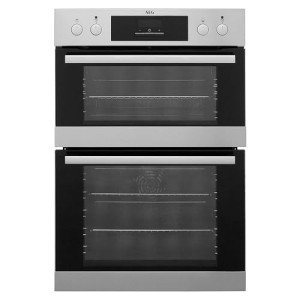
19
maio14 Smart Ways To Spend Leftover Fitted Ovens And Hobs Budget
Fitted Ovens and Hobs: An In-Depth Guide to Modern Cooking Appliances
Fitted ovens and hobs have become a staple in modern-day kitchens, integrating performance, aesthetic appeals, and ingenious technology. These kitchen appliances are created to perfectly incorporate into kitchen surface areas, providing the cooking lover with the tools needed for effective meal preparation while maintaining a streamlined and organized look. In this article, we will check out the different types of fitted ovens and hobs, their benefits, elements to think about when choosing them, and answers to often asked concerns.
Comprehending Fitted Ovens and Hobs
Fitted ovens and hobs are appliances particularly designed to be built into kitchen cabinetry or countertops for a smooth look. They can differ significantly in design, size, integrated ovens uk functionality, and functions, which cater to varied cooking needs and kitchen styles.
Types of Fitted Ovens
- Built-in Ovens: These ovens are set up directly into a wall or kitchen system and can be found in various setups and sizes.
- Double Ovens: A built in range-in version that includes 2 different oven compartments, enabling numerous meals to be prepared at varying temperature levels simultaneously.
- Mix Ovens: These flexible appliances integrate traditional baking with microwave technology.
- Steam Ovens: Ovens that use steam for cooking, maintaining wetness in food while improving flavors and nutrients.
- Single Ovens: A standard oven unit that is the most typical type utilized in homes.
Types of Hobs
- Gas Hobs: These make use of burner for cooking, providing immediate heat and precise temperature control.
- Electric Hobs: Powered by electrical energy, these hobs often feature smooth surface areas that make them easy to tidy.
- Induction Hobs: Utilizing electro-magnetic energy, induction hobs heat cookware straight instead of the integrated hob and oven surface, making them energy effective and a safe alternative.
- Combined Hobs: These offer both gas and electric alternatives, offering versatility for cooking designs.
Benefits of Fitted Ovens and Hobs
Fitted ovens and hobs use various benefits that boost the cooking experience:
- Space Efficiency: Designed to fit into cabinets, fitted appliances take up less area compared to standalone models, developing a structured kitchen design.
- Aesthetics: Fitted models frequently create a more cohesive and visually attractive kitchen style.
- Customization: Homeowners can pick from a range of designs, finishes, and includes to match their kitchen decoration and cooking requirements.
- Improved Functionality: Many contemporary fitted ovens and hobs boast innovative innovation, such as wise controls, self-cleaning functions, and precise temperature level settings, which streamline cooking.
- Safety Features: Many hobs, particularly induction models, have security features such as car shut-off and kid locks, promoting a safer cooking environment.
Factors to Consider When Choosing Fitted Ovens and Hobs
When picking fitted appliances for a kitchen, numerous elements ought to be thought about to ensure the best option:
- Cooking Style: Different appliances cater to different cooking practices. Home cooks should examine their common meal preparation methods to find suitable appliances.
- Space and Layout: Measure the available area in the kitchen to make sure that the chosen appliances fit nicely without impeding motion.
- Energy Efficiency: Choose appliances with energy-efficient ratings to lower energy expenses and environmental impact.
- Technology and Features: Consider the desired features, such as wise innovation, self-cleaning modes, or specific cooking functions like steam or convection cooking.
- Budget plan: Determine a spending plan before making choices to ensure that the selected designs line up with financial planning.
Table: Comparison of Different Types of Ovens and Hobs
| Home appliance Type | Pros | Cons |
|---|---|---|
| Built-in Ovens | Space-saving, personalized style | Installation cost can be high |
| Double Ovens | Prepare multiple meals at different temperatures | Uses up more area |
| Steam integrated ovens | Healthy cooking, keeps nutrients | Generally greater cost |
| Gas Hobs | Quick heat control, preferred by chefs | Requires a gas line setup |
| Induction Hobs | Fast cooking, energy-efficient, safe | Needs compatible pots and pans |
| Electric Hobs | Easy to clean, steady cooking temperature levels | Heating times can be slower |
Regularly Asked Questions (FAQs)
1. What is the distinction between a built-in oven and a freestanding oven?
A built-in oven is integrated Ovens uk into kitchen cabinetry for a smooth look, while a freestanding integrated oven stands alone and is frequently more noticeable and available.
2. Are induction hobs safe to use?
Yes, induction hobs are thought about safe as they just generate heat when suitable pots and pans is put on them, lowering the danger of burns.
3. Can I set up a fitted oven myself?
While some individuals may pick to set up fitted ovens themselves, it is usually advised to hire an expert to ensure appropriate installation and adherence to security standards.
4. What size of oven is ideal for a small kitchen?
In small kitchens, think about compact or single built-in ovens that fit within the readily available area without compromising on cooking functionality.

5. Do fitted ovens and hobs require unique maintenance?
Fitted appliances require standard upkeep, such as cleaning and regular checks. However, particular upkeep jobs depend on the kind of oven or hob.
In conclusion, fitted ovens and hobs represent the embodiment of modern kitchen style and functionality. By understanding their types, advantages, and factors to consider, customers can make educated options that boost their cooking experiences while fitting flawlessly into their home. Whether creating gourmet meals or preparing family suppers, fitted oven ovens and hobs are important tools in any cooking space.


Reviews